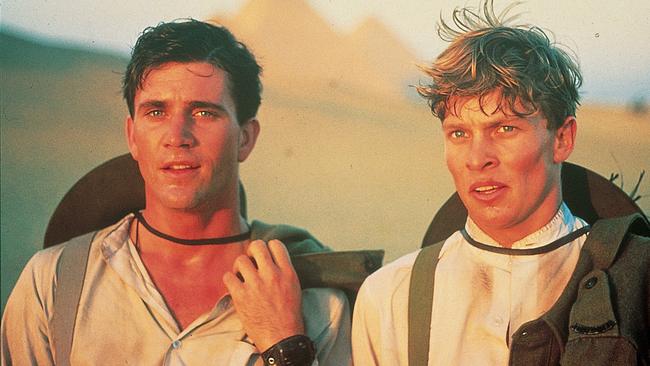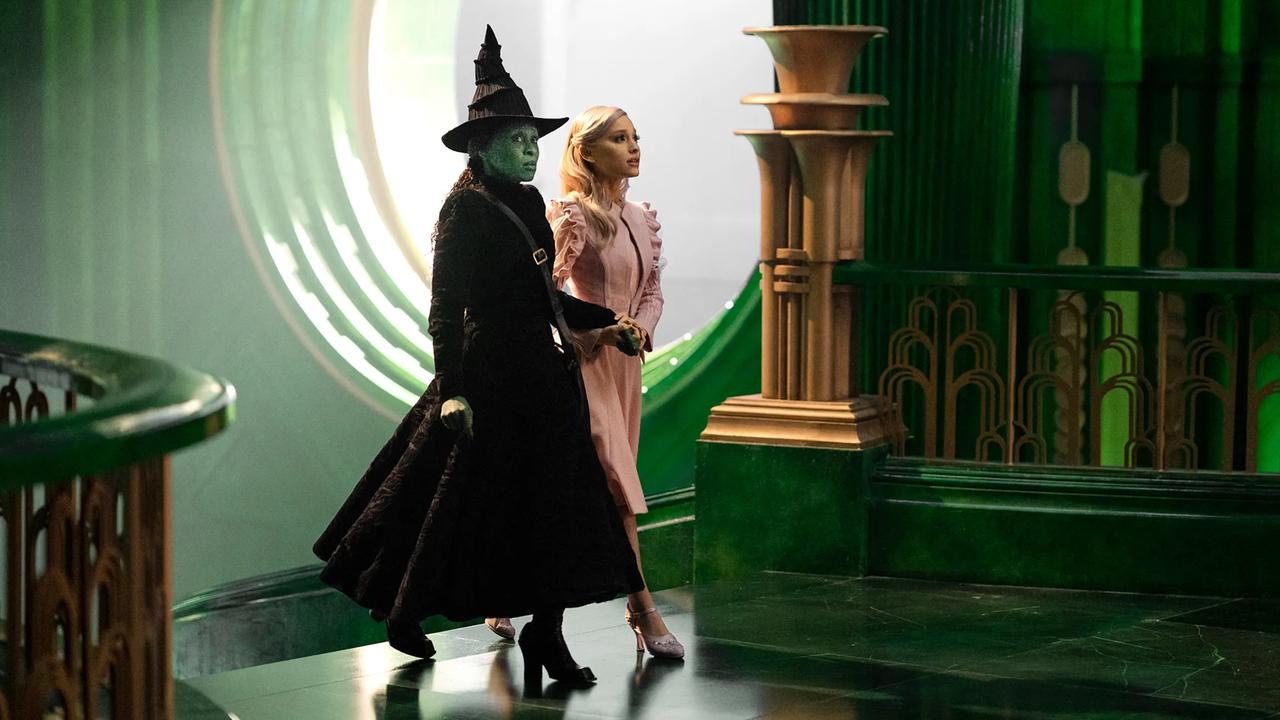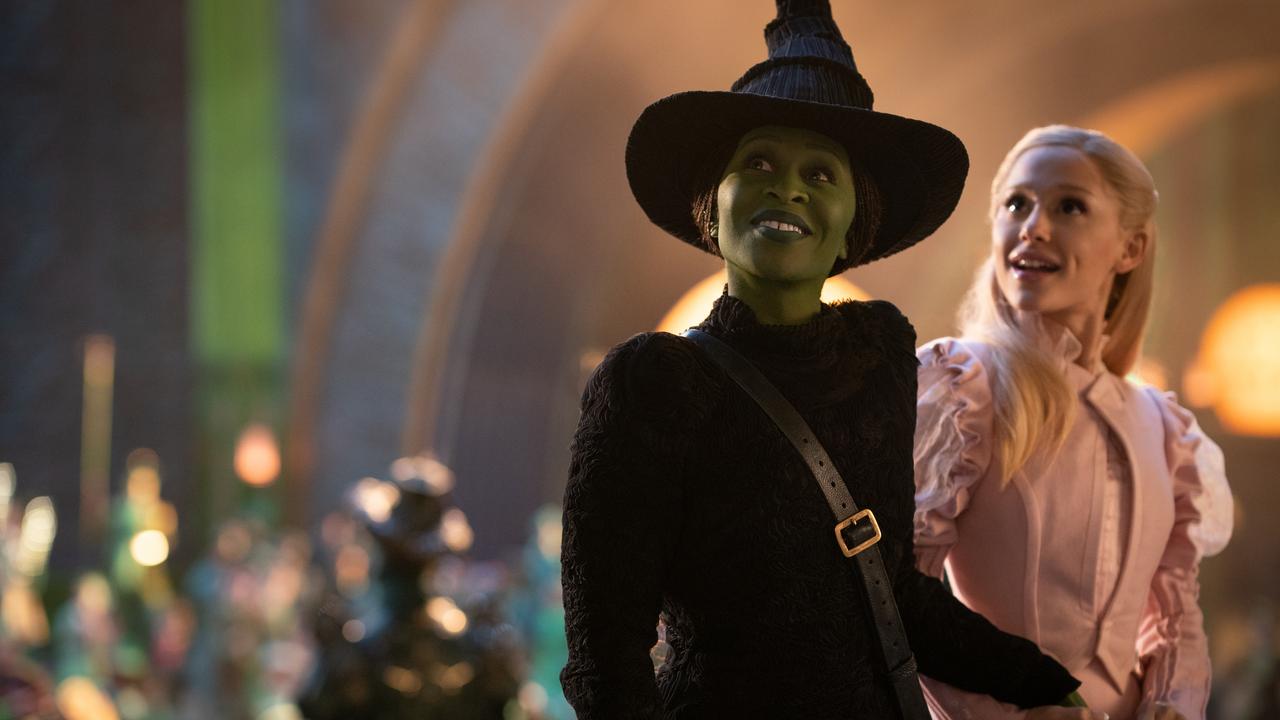Evan Williams reviews Gallipoli, The Weekend Australian, August 1981
ON August 8, Evan Williams’s first film review for The Weekend Australian, on Peter Weir’s masterpiece Gallipoli, was published. Read it in full.

SO delighted was my first response to Peter Weir’s Gallipoli — though delight seems scarcely the word for a film so darkly suffused with this world’s pain — that even now, weeks after I had the privilege of seeing it, my inclination is still to doubt my judgment.
Was I unfairly influenced in its favour, or is it really the masterpiece it seems to be? It is true that one still feels a certain exaggeration and unnecessary loyalty to the local industry, a readiness to enthuse where modest praise is due. It’s true that I have a special admiration for Weir himself: and I suppose there was also — to put it no higher — a sense of simple relief that a film on which so many talents and reputations had been staked was not a self-evident disappointment. But, when all allowance is made for caution and partiality, one is driven to conclude that here, indeed, is a film of true nobility and greatness — as accomplished a work of art as our country has produced, a serene and poignant contemplation of our origin as a nation and the tragedy that shapes us.
Mr Weir is not simply concerned to make another powerful statement against war. Certainly, an abhorrence of war is implicit in the film’s conception, but the horror of its central events is barely touched on, let alone emphasised. Rarely has a war film been so discreet, even fastidious, in avoiding the details of bloodshed and carnage.
It is significant. I think, that the film does not deal with the first famous assault on Gallipoli — the tragedy we commemorate on Anzac Day itself — but with one of the several landings that came after. If Weir’s purpose had been merely to make a great battlefield epic — dwelling on death and spectacle and military incompetence — those first doomed assaults on the Turkish beaches would have been the film’s natural, and expected, theme. But, they are not. Weir’s purpose is more original, more daring and important: it is to explain what Gallipoli (and by that we mean the First World War) means to Australia’s history and our understanding of ourselves.
The film is an examination — to some extent a revelation — of enduring verities in our spirit and consciousness. It is a study, among other things, of idealism and folly, and the first serious attempt in an Australian film to come to grips with one of unique and formative traditions — the idea of mateship.
So far as it is possible for a work of entertainment to ask such question as: “What is an Australian?” and: “What has gone to make us as we are?” — Gallipoli provides some of the answers. The film’s abiding preoccupation is with waste and with loss — loss of face, the blighting and subversion of good and natural human instincts like courage and honour, above all, of course, the loss of life — specifically the destruction of a generation of the world’s manhood. I do not think the scale of this disaster — and especially the way it diminished and coarsened our own country’s history — will ever be fully grasped.
It may be that an understanding of its tragic dimensions requires more than pity and imagination, but the kind of mystical apprehension of a darker world for which Mr Weir’s earlier films — with their baleful curiosity about our deepest mysteries and superstitions — have prepared us. Weir, in the truest sense, knows and understands his subject. It can be said of Gallipoli that it is the work of a man almost poetically possessed with the implications of its theme and the scale of the tragedy it seeks to encompass.
In all of this one must, of course, give credit to David Williamson’s script — the collaboration of our best director and our best playwright was always eagerly awaited and the results are a cause for rejoicing. Rightly and inevitably, they have chosen to approach their subject in the most accessible human terms, concentrating of the experiences of two young men, and following them from their first encounter in the Western Australian outback, through the process of recruitment and training to their final reunion at the front.
Archy Hamilton, the central figure (if only for the reason that he is the first one we meet) is played with astonishing assurance by Mark Lee. He meets his mate, Frank Dunne (Mel Gibson), at a country athletics meeting, but neither is presented as a “typical” Digger. By making both men champion sprinters, Weir is open to the charge that he is giving his characters a false romantic emphasis, but it’s a device entirely justified by the demands of the narrative and Weir’s use of symbolism. The acts of running — in play, in competition, in training, in combat — is a recurrent theme of the film, through which its convulsive passion and energy is focused and liberated. The race starter’s gun becomes, in the end, the officer’s pistol — the signal for the fatal charge.
We meet Archy, aged 17, during a training session with his Uncle Jack (a small, flinty, magnificent portrayal by Bill Kerr), and the film’s opening scenes, filmed in a chill blue dawn light, have an unearthly sense of potency and foreboding. Russell Boyd’s photography fulfulls all expectations. Weir’s feelings for desolate outback spaces, apparent at the beginning of The Last Wave has rarely been shown to better effect.
When Archy and Frank hitch a train ride to Perth to join up, and are unexpectedly dumped at some forsaken desert siding, they set out to cross a salt lake on foot and almost perish from heat and thirst. The sequence draws together two of the film’s main strands: the origins of friendship forged in suffering and duress and the first hint of the war’s distant, but lengthening shadow. A bushman first mentions the world “Gallipoli” (touchingly mispronounced), and we know the final tragedy has started.
The funniest lines have a bitter irony. “What war?” asks an outback yokel when Archy reveals he’s joining the Light Horse: and surveying the barren circumference of desert landscape, Archy explains: “If we don’t stop the Huns over there, they’ll come and take all this from us.”
But it is in the scenes at Gallipoli itself that Weir reaches his full height of inspiration and there are moments whose details and texture will be forever etched sharply in my mind.
The first landing at night is unforgettable: the beach, approached in darkness, twinkling with its myriad small campfires like some silent, ghostly fun fair; the men taking refuge in the sea during a routine daylight shelling, their bodies twisting idly under water to the soft percussion of gunfire above the surface; the men’s last letters, pinned with bayonets to the sandbags before the final charge: the hard, relentless sunlight, redolent of home.
Of the two friends, Frank is the more reluctant soldier and his first case of fear after all the early jollity and bravado is a moment of wrenching anguish. When at last the Australian troops go over the top, Weir draws our attention briefly to the ranks of Turkish machine-gunners and, for the first time, there’s an almost obscene concentration on weapons and ammunition. It’s the sort of shot familiar to B-grade westerns; but here the effect is strangely shocking as guns are casually handled and readied for their lethal task.
One cannot praise the performances too highly, the young actors meet the demands made upon them with immense skill and understanding, and Bill Hunter is splendid as the hard-pressed Major Barton, conscious of the fate that awaits his men as they are sacrificed in a futile actions to draw the Turkish fire.
In an unimportant sense, the film’s tone is anti-British: but in contrast with a film like Breaker Morant, the political stance in Gallipoli is irrelevant both to the narrative and director’s deeper purpose. Weir’s aim is not to accuse, but to explain: not to preach, but to lament: to show what happened and what is was like. Other directors of war films have been driven by anger and contempt — a hatred of militarism and the men who promote it.
Weir is driven by compassion and he is sufficiently far removed from his subject in time and place to look on all its incalculable suffering with a rare detachment. The blunders of the military and the motive of the men — misguided patriotism, thoughtless bravado, a simple sense of duty — are clearly examined and held up for inspection: but Weir does not despise them. He invites us simply to consider and understand.
Gallipoli is not a fireworks display; a tirade against official bungling or a wallow in nostalgia; there is a sunniness, an inner sense, above all that tranquillity in its mood that sets it apart — a tone matched beautifully by the passage from the Albinoni Adagio used in the credits.
One could, I suppose, find fault with Gallipoli, but the faults would be ones of detail. One might have wished for trivial things, shorter haircuts or less time in the fleshpots or markets of Egypt.
We know something of Weir’s concen for verisimitude, but whether the film is “true” in all its detail seems to me beside the point. My own reaction, as one with no experience of the subject, was always to reflect: “Yes, that’s probably what it was like” — remembering that Weir’s objective was not to show us Gallipoli through a documentary lens, but with an artist’s vision. He has succeeded magnificently.
From The Weekend Australian, August 8-9, 1981


